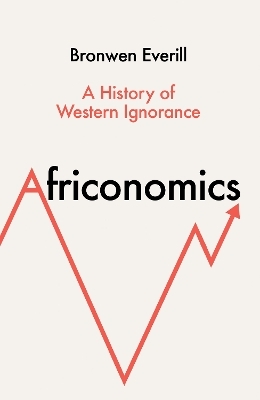
Africonomics
A History of Western Ignorance
Seiten
2024
William Collins (Verlag)
978-0-00-858115-2 (ISBN)
William Collins (Verlag)
978-0-00-858115-2 (ISBN)
'A historically insightful read'
Financial Times
'A wry, rollicking, and provocative history' Michael Taylor, author of The Interest
‘A thought-provoking analysis of Africa's relationship with economic imperialism’ Astrid Madimba and Chinny Ukata, authors of It’s A Continent
We need to think differently about African economics.
For centuries, Westerners have tried to ‘fix’ African economies. From the abolition of slavery onwards, missionaries, philanthropists, development economists and NGOs have arrived on the continent, full of good intentions and bad ideas. Their experiments have invariably gone awry, to the great surprise of all involved.
In this short, bold story of Western economic thought about Africa, historian Bronwen Everill argues that these interventions fail because they start from a misguided premise: that African economies just need to be more like the West. Ignoring Africa's own traditions of economic thought, Europeans and Americans assumed a set of universal economic laws that they thought could be applied anywhere. They enforced specifically Western ideas about growth, wealth, debt, unemployment, inflation, women’s work and more, and used Western metrics to find African countries wanting.
The West does not know better than African nations how an economy should be run. By laying bare the myths and realities of our tangled economic history, Africonomics moves from Western ignorance to African knowledge.
Financial Times
'A wry, rollicking, and provocative history' Michael Taylor, author of The Interest
‘A thought-provoking analysis of Africa's relationship with economic imperialism’ Astrid Madimba and Chinny Ukata, authors of It’s A Continent
We need to think differently about African economics.
For centuries, Westerners have tried to ‘fix’ African economies. From the abolition of slavery onwards, missionaries, philanthropists, development economists and NGOs have arrived on the continent, full of good intentions and bad ideas. Their experiments have invariably gone awry, to the great surprise of all involved.
In this short, bold story of Western economic thought about Africa, historian Bronwen Everill argues that these interventions fail because they start from a misguided premise: that African economies just need to be more like the West. Ignoring Africa's own traditions of economic thought, Europeans and Americans assumed a set of universal economic laws that they thought could be applied anywhere. They enforced specifically Western ideas about growth, wealth, debt, unemployment, inflation, women’s work and more, and used Western metrics to find African countries wanting.
The West does not know better than African nations how an economy should be run. By laying bare the myths and realities of our tangled economic history, Africonomics moves from Western ignorance to African knowledge.
Bronwen Everill is the author of Not Made by Slaves and Abolition and Empire in Sierra Leone and Liberia. She has held a Leverhulme Fellowship, is a Fellow of the Royal Historical Society, and was the Director of the Centre of African Studies at the University of Cambridge. She now teaches at Princeton and is a Research Affiliate at the Laboratory for the Economics of Africa's Past in the Department of Economics at Stellenbosch University, South Africa.
| Erscheinungsdatum | 08.10.2024 |
|---|---|
| Verlagsort | London |
| Sprache | englisch |
| Maße | 153 x 234 mm |
| Gewicht | 370 g |
| Themenwelt | Geisteswissenschaften ► Geschichte ► Regional- / Ländergeschichte |
| Geschichte ► Teilgebiete der Geschichte ► Wirtschaftsgeschichte | |
| Wirtschaft ► Volkswirtschaftslehre | |
| ISBN-10 | 0-00-858115-0 / 0008581150 |
| ISBN-13 | 978-0-00-858115-2 / 9780008581152 |
| Zustand | Neuware |
| Haben Sie eine Frage zum Produkt? |
Mehr entdecken
aus dem Bereich
aus dem Bereich


